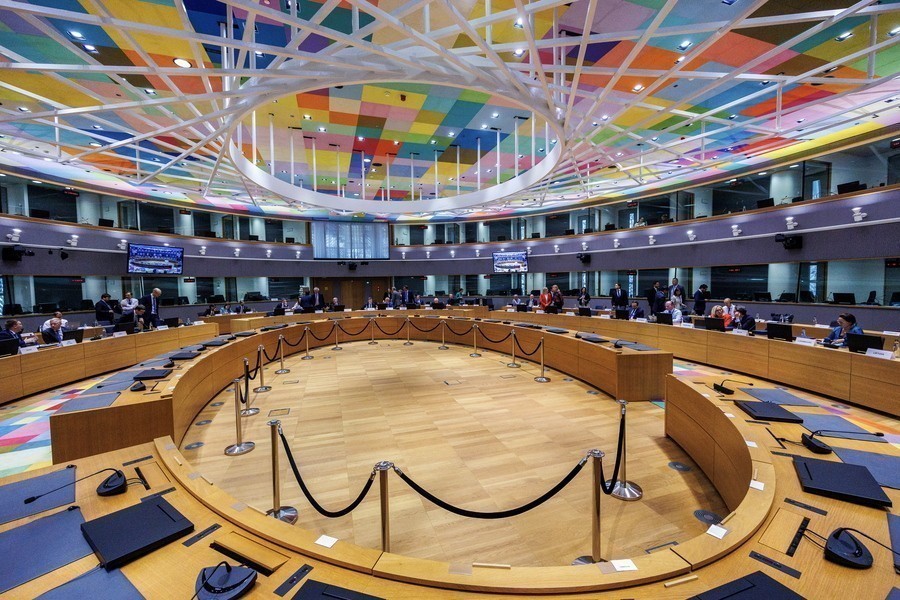
Greece will not accept IMF demands for more measures, labour deregulation, government spox says
The Greek government will not back down in the face of the International Monetary Fund (IMF) pressure for more measures, government spokesman Dimitris Tzanakopoulos reiterated on Sunday, in an interview with the radio station Athina 9.84.
“We have made it clear that there is no chance of us accepting all that the IMF demands with regard to the measures but also with regard to labour issues,” he said.
He also suggested that this may not necessarily be the case for main opposition New Democracy and its leader Kyriakos Mitsotakis. “I think they would be willing to accept [the measures] in the sense that the main opposition party has, throughout the previous period, conducted politics in a way that whetted the IMF’s appetite,” he said.
The atmosphere and momentum among the Eurozone’s leadership pointed to a political agreement on Greece by the end of the year, Tzanakopoulos added, “because everyone understands that Europe cannot withstand another flare-up of the Greek crisis when there are issues that concern Italy, a pre-election year for several European countries and the refugee crisis.”
In the case that the IMF proved inflexible and insisted on its terms, Tzanakopoulos admitted that the pressure from the IMF was strong but noted that there were many other factors affecting a solution for the Greek issue, not just the IMF.
“I do not consider that Europe will stay on the sidelines regarding these demands; We all understand that they are unreasonable, recessionary and absolutely cannot be accepted by our side,” he noted.
Tzanakopoulos said the Greek government was working toward achieiving a political agreement at Monday’s Eurogroup, which would allow a discussion on Greek debt relief measures to begin and also allow Greece to join the European Central Bank (ECB) quantitative easing programme in the first quarter of 2017.
He said the December 5 Eurogroup would be a landmark meeting in that the basic outline of a comprehensive agreement on Greece would be decided there, while a second extraordinary Eurogroup might be needed before the end of the year to “rubber stamp” this.
Regarding labour issues, in particular, Tzanakopoulos noted that Greece was in a singular position of “exception” from European norms regarding collective labour bargaining and that this cannot continue.
“As the Greek government, we have said from the start that we can neither legalise nor make permanent this condition of exception. And for this reason, with very specific legal, economic and political arguments, we have tried to restore collective bargaining. For us, this is equally important as avoiding any measure for mass layoffs,” he said.
He said that at Monday’s Eurogroup, if there is agreement on the short-term measures proposed by the European Stability Mechanism (ESM), a discussion on medium-term and long-term measures will begin, noting that these were directly linked to primary surplus targets after 2019.
Commenting on recent statements made by Germany’s Finance Minister Wolfgang Schaeuble regarding Greek debt and whether this might block the Greek government’s efforts in this direction, the spokesman noted that Schaueble’s statements were also aimed at German tax payers, not just Greece and Europe.
“When he talks about debt relief he means reduction. No one is currently discussing the nominal reduction of Greece’s debt. We are talking about extensions, about interest rates and, therefore, I consider that by the end of the year we can arrive at specific medium-term and long-term measures that will be implemented after the end of the programme. And which will possibly pull primary surpluses downward,” he said.

